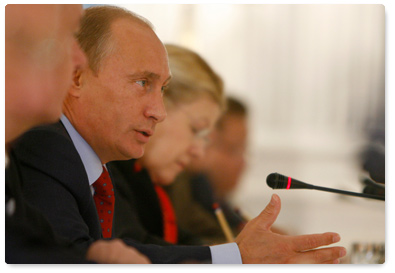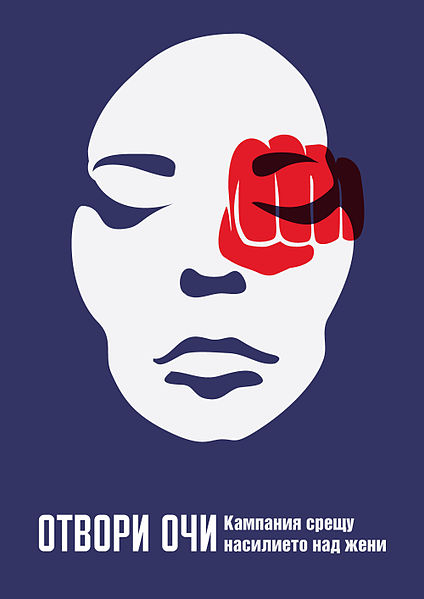
Written by Kirsti Stuvøy, Associate Professor at Noragric
In last week’s news headlines, we could read that Russia decriminalizes violence against women. The traditionalist, conservative and anti-liberal forces in Russian domestic politics are thereby further strengthened. The ban on so-called “gay propaganda” from 2013 is perhaps the most famous example of this trend. The lawmaker behind the anti-gay law, Yelena Mizulina, senator in the Federation Council of Russia’s two-chamber political system (the other chamber is the Duma), has also pursued the latest law.
In this blog-post, I want to explain the domestic struggle that Mizulina’s initiatives are part of, but I will also reflect on the international dimensions of this struggle. This is motivated by a curiosity about the nexus of domestic and international politics. Such connections are usually complex and difficult to explain, but we readily recognise them today in, for example, Brexit and “Trumpism”. Both phenomena are recognized as protests against globalization. With its annexation of Crimea in 2014, Russia has demonstrated a willingness to not adhere to international rules, and in 2015 international normative documents were ruled by the Russian Supreme Court as subordinate to domestic legislation. Whilst we see a move towards more nationalistic politics, the questions is, how the new development to decriminalize violence against women is also related to international politics.
Let me start by saying that the issue of domestic violence in Russia is one I am passionate about. In my PhD research I studied how crisis centres for women, victims of domestic violence, were established across Russia’s northwest. I visited crisis centres across the region, in Karelia, Murmansk and Archangelsk, but also in the two key centres of Russia: St. Petersburg and Moscow. The first crisis centre in Russia was established in 1993 in Moscow, the Anna Centre for Domestic Violence. It was one amongst many initiatives from the Russian women’s movement that furthered a post-soviet civil society. Foreign finance was a key resource for many of these NGOs set up in Russia during the 1990s to work with women’s issues, including violence against women. Now this model of financing is under scrutiny and projected as counter to Russia’s national interest. With the infamous “foreign agent legislation” from 2012, Russian NGOs with foreign funding and involvement in political activity risk being fined, labelled and thus de-legitimized as “foreign agents”. This has created an atmosphere of fear and lack of predictability that affects Russian civil society.

For crisis centres for women, funding became a problem long before the legislation was installed, however. International funding has followed the path of the war against terror and has found other geographical foci. Some crisis centres saved themselves by becoming state-based centres, while other struggle to continue their work as NGOs. During the post-soviet era, women’s groups established a certain support structure for victims of domestic violence in Russia, albeit ad hoc and vulnerable to the local networks, and the personal contacts the crisis centre had to local police and health personnel. This was and is the key support structure. The legislative protection against domestic violence has been particularly poor.
Russia has just decriminalized domestic violence against a background of having recently criminalized it, in fact only last year. In 2016, President Vladimir Putin introduced changes in Russia’s criminal codex. Until then, Russia had never had legislation on domestic violence. During the liberal era of the 1990s, the Russian women’s movement tried to push for legislative change. After fifty or so hearings, the legislative proposal had been watered down and changed so much that the women’s movement thought it better without a law. This situation changed last year. As part of President Putin’s proposed change in the criminal codex, the term “close persons” (близкие люди) was introduced into article 116. This is one of the three articles in the Russian criminal codex most frequently used in domestic violence cases. The articles 115 (damage to health) and 116 (physical harm) were within private prosecution. Article 119, covering threatened homicide and severe damage, lies within public prosecution. The legislative change last summer was thus an improvement that not only introduced a new category (“close relatives”) but changed article 116 from private to public prosecution. Thus, it introduced a greater public responsibility in domestic violence cases.
From the women’s movement’s point of view, this was a great improvement. The difference between private and public prosecution is huge in the issue of domestic violence. Public prosecution signals that it is not the responsibility of the victim to collect evidence and prepare the case. With public prosecution, the victim of domestic violence is relieved of an enormous burden, as it becomes a public responsibility to prepare the case. The symbolism is strong when the state takes on this responsibility.
For the international women’s movement, criminalizing domestic violence emerged as a key demand decades ago. The fight for women’s rights as human rights and the development of transnational advocacy on violence against women across north-south divides during the 1970s and 1980s pushed the issue into the UN’s reporting system on all forms of discrimination against women: the CEDAW Convention. Women activists recognized and discussed how criminalizing implies privileging lawyers and legal expertise. For small NGOs and crisis centres with limited access to the legal system, this can imply that their role is diminished and that criminalizing takes focus away from prevention and treatment. This has been important to Russian activists as well, but this has been largely due to how their previous efforts to advocate for the introduction of legislative change on domestic violence have fallen short. Instead, Russian women’s groups have focused on programmes engaging medical personnel, teaching them the importance of the written documentation they are obliged to provide as part of the preparation of a court case. They have run training programme for the police, whose neglect of domestic violence has been recognized as a huge part of the problem in Russia. These efforts were, amongst others, intended to mould the context and develop a public debate on domestic violence. In the post-Soviet era, one of the key achievements of the crisis centre movement in Russia has been to change domestic violence from being seen as a way of disciplining (your wife, “unruly women”) to identifying it as violence and thus a societal problem. The move to decriminalize is thus a setback on these achievements.

Last week’s legislative change in Russia projects “first committed beatings” as acceptable and normal, part of what women need to reconcile with. Domestic violence was moved from the criminal codex into administrative law. Therein lies the decriminalization. It also means that Justices of the Peace, not the court, will deal with domestic violence. The Justices of the Peace do not decide on guilt but aim to reconcile partners. It means fines will continue to be the key punishment in domestic violence cases, if any. It can be expected that the fines will continue to be low, as they are adjusted to the perceived overall economic burden of the traditional male breadwinner. Thus, women’s legal protection in the case of domestic violence is again falling sadly short.
The international community has repeatedly pointed out that Russia is not doing enough to combat domestic violence. During every periodic review of Russia’s country report to the UN’s women convention, CEDAW, and most recently last year, Russia has been criticized and urged to change its legislation and its assistance structure to domestic violence victims. Officially, 40% of all violent crime in Russia is committed within the family, 36 000 women are assaulted by their partner every day in Russia and 26 000 children are being beaten by a parent every day. The ignorance towards domestic violence is also evident in the lack of interest of establishing more qualified numbers; since 1995, Russia has reported that 15 000 women per year are killed by a close relative in their regular report to the UN on domestic violence. This number is high in both absolute and relative terms. There are, however, questions pertaining to the origin of the numbers and the registration of the term “close relative” by the police. Yet the Ministry of Justice confirmed the number in 2010 in the questioning conducted in connection with Russia’s reporting to the CEDAW. The high number does not seem to be embarrassing or compelling enough to address the questions connected to its origin. This makes one wonder whether ignorance is guiding the approach to governance of domestic violence in Russia. It also reinforces the impression that Russia could not care less about the international institution that exercises the global monitoring function on violence against women.
This apparent arrogance and the recent move to decriminalize unfolds at a time when women’s groups and Russian civil society are struggling. This is perhaps an explanation for why the legislative change seemingly went unnoticed for the women’s groups. However, there are also some positive developments with regard to violence against women in Russia. Last summer, a social media-campaign attracted lots of attention to domestic violence in Russia as well as in Belarus and Ukraine. Using the hashtags #Янебоюсьсказать and #Iamnotafraidtotell women shared their experiences of violence. During the last decade, there have been a number of famous people in Russia speaking out about their own experiences of domestic violence. The impression has therefore been that this is increasingly a recognized problem, not anymore hidden in shame but spoken about. The Russian state’s move to support state crisis centres underlines the recognition of the problem, as does also the move last summer, to move domestic violence into the category of public prosecution.
Yet, how can Mizulina then trump the legislative process and reverse a development that the President seemed to be on top of? One is left wondering whether this reverse was part of a grand plan to make President Putin appear as the supporter of vulnerable women, while in the end leaving things as they are. I do not think that is the case, and I think the pre-occupation with the top echelon of power is part of what we get wrong about Russian politics: this is not where all societal logics begin and end.
Nevertheless, we cannot ignore that the regime’s signals on what are legitimate or illegitimate actions, are important to the kind of politics that unfold in Russia. Mizulina had reason to be confident that her move was legitimate, not only because, as she argued, this legislation protects the way of life in Russian families. This alludes to a conservative idea of the family ruled by a traditional patriarch, who rebukes the family members and does not shy away from using power. This is not the only a reality of Russian family life; single parenthood is prominent as are more gender-equal families. Russia’s politics are, however, connected to a strong conviction of a certain idea of what is right, crowned with the concept of “sovereign democracy”.
This guiding principle is projected in the “foreign agent” legislation against NGOs from 2012 and the list of so-called “unwanted organization” issued in December 2015, banning four foreign foundations from activity in Russia. “Sovereign democracy” reinforces nationalist sentiments and strengthens the conservative and traditionalist forces against the liberal and more western- and internationally oriented forces in Russia’s domestic struggle. It defends the domestic against the international. The decision by Russia’s Supreme Court in 2015, that domestic legislation has precedence over international human rights conventions, is therefore a signal of the retreat from international normative frameworks. This also reinforces sovereign democracy as key resource in the struggle for legitimacy in domestic politics.
To summarize, I understand last week’s legislative change to decriminalize domestic violence in Russia to be embedded not only in the domestic struggle between conservative and liberal forces, but also in an international and geopolitical struggle pertaining to Russia’s identity. The wind against globalization that Brexit and Trumpism seem to comprise, is feeding into this process. The attack on vulnerable women in Russia is perhaps an unintended consequence, yet most likely a trend to watch out for as international governance structures are re-defined: Are those already vulnerable made even more vulnerable?

Kirsti Stuvøy is an Associate Professor at Noragric and Head of Education at the Faculty of Landscape and Society at NMBU. She is a political scientist and researches and teaches in the field of international relations and development studies. She has published on security theory, human security and methodology, war economy in Africa, Russian politics and civil society development, and Arctic governance. She has conducted several field trips to Russia.


